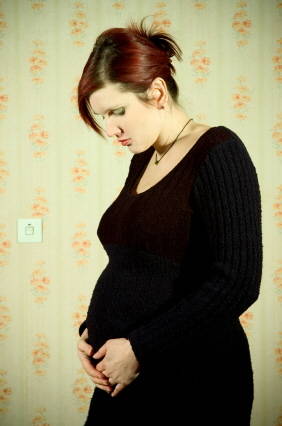Last menstrual period date:
In this blog, we will discuss the Group B Streptococcus and Pregnancy, what is this GBS, how did you get it, and how did it affects your pregnancy.

Pregnant women who are carrying Group B Streptococcus have three questions in mind “What is Group B Streptococcus?”, “Can GBS affect pregnancy?” and “How did I get it?” GBS is a bacterial infection which can be normally found in the rectum. Chances of infection from GBS during pregnancy are high; due to the proximity of the vagina it gets easily transferred at the time of delivery. How did I get Group B Streptococcus you may wonder, some women are carriers and do not know until they become pregnant.
GBS is not sexually related and the easiest way to get it is by transferring this bacterium from the colon into the vagina. Most women are worried that GBS may affect pregnancy. You should know that GBS generally doesn’t affect pregnancy, but it can harm your baby if you do not treat it. That is why we should take all the precautions to prevent ourselves from GBS. The rules for intimate hygiene are the same for all women during pregnancy. When using toilet paper or washing the intimate parts of your body, in order to protect yourself from bacterial infection, always wipe from the upper part of the vagina and slightly go down to the rectum. Never go in opposite direction because you will transfer all the bacteria from the rectum into the vagina. During pregnancy we want to prevent ourselves, not only from GBS infection, but from everything else as well.
When is best to test for Group B Streptococcus during pregnancy?
The best time to test whether you have Group B Streptococcus is between the 35th and 37th week of pregnancy. Studies have shown that women who have done this test within 5 weeks of delivery is considered the most accurate to predict the GBS. The GBS test involves taking a swab of the vagina and the rectum. Once the swab is taken, the sample is immediately sent to a lab where it’s analyzed for any presence of GBS. The results from the GBS testing are available within 24 to 48 hours. After getting the result your doctor will advise you of any actions if you are positive.
My GBS test is positive, what to do?
If you got positive results for GBS, that is totally all right. This just means that you are carrier, not that your baby will become ill. Worry not! There is a standard medical procedure for women who are GBS positive during pregnancy that will help you. Your physician will recommend an antibiotic therapy during your delivery through IV in order to prevent your baby from infection. This antibiotic therapy will decrease your baby’s chances to develop an early group B strep infection. By taking an early test for GBS and taking all precautions possible you will have a healthy and strong baby.
Are there any chances for my baby to be GBS positive even if I took the antibiotic therapy?
All infants are closely watched for symptoms of an infection. This “keeping an eye of the baby” is increased when the mother was GBS positive at some point during pregnancy, whether she was treated with antibiotics or not. The chances are very small for her baby to be GBS infected, but there are possibilities. That is why all the medical practitioners or pediatricians are here watching and searching for signs whether our babies they have been infected or not. The consequences are big if we have missed the signs after pregnancy.
There are two types of GBS infection in newborns. The first in an early-onset disease that shows up before the baby is seven days old. This early infection can affect the baby’s lungs, spinal cord, brain or blood. This infection after pregnancy can be very serious and hard to fight off for a newborn baby. This is what the medical practitioner was aiming to stop with the antibiotic treatment during the labor.
The second type GBS infection is a late –onset disease. The signs are late even after the baby is seven days old. Meningitis is one of the most common problems, even if we do not decrease the late onset with an antibiotic therapy we have to react immediately and the antibiotics once the baby is born.
In conclusion, be sure to be checked and tested by your doctor. Catching this condition early is important to your and your baby’s health.
My content




